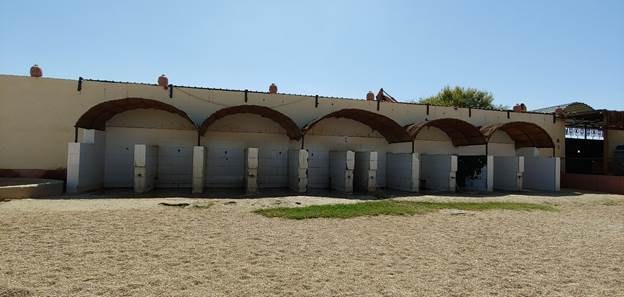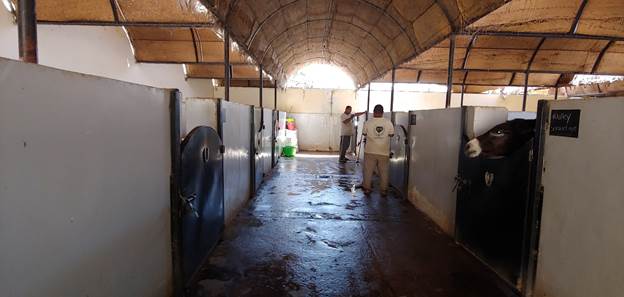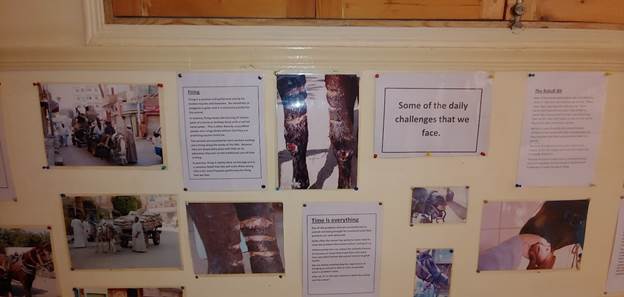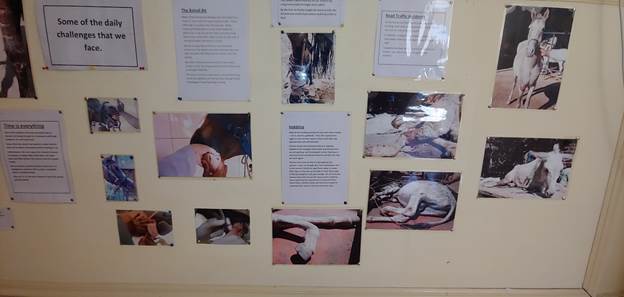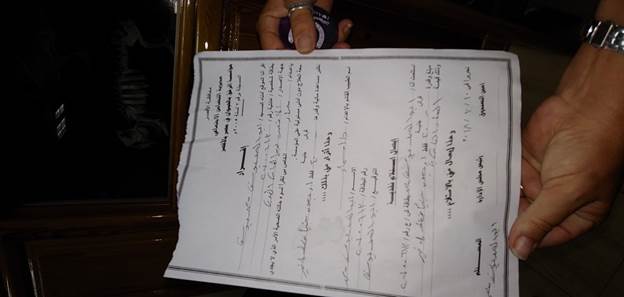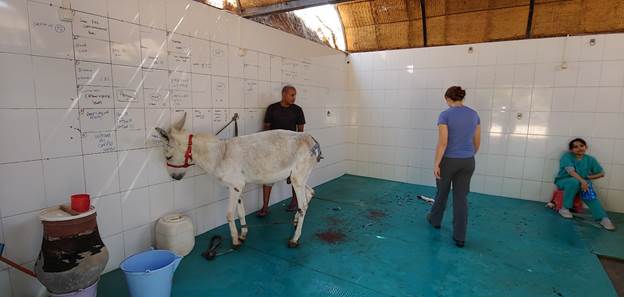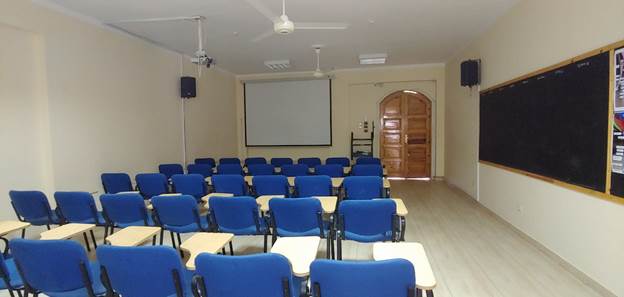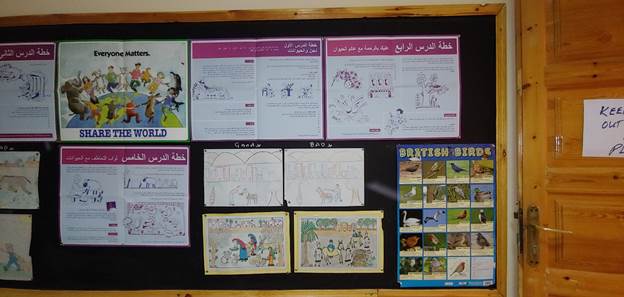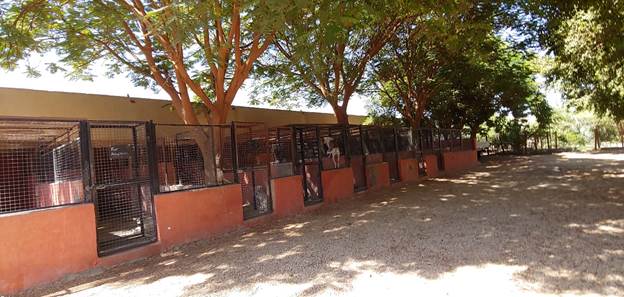
|
Hilda Tresz Global Volunteer Work | ||||||||||
| Argentina | Brazil | Chile | China | Egypt | India | Ivory Coast | Qatar | Russia | Senegal | United Arab Emirates |
|
Animal Care in Egypt | ||||
|
Animal Care in Egypt (ACE) October 9 through October 11, 2018 Supervising Joint
Committee of General Organization of Veterinary Services (GOVS),
Egypt organized a two-day trip to Luxor to evaluate, advise and
exchange information with the three free animal hospitals
practicing in Luxor. Animal
Care in Egypt (ACE) is a charity
dedicated to stopping the suffering of thousands of animals in the
poorest communities of Luxor by providing free veterinary
care and education. The
following information is partially from the institution’s
website. For
over 18 years the clinic has been helping local animals when they
need it most. This is alongside preventative treatments and
education, delivering a long-term impact on the welfare of working
animals and the people that depend on them so greatly for their
livelihoods. These hard-working animals often lack the most basic
veterinary care. Many are neglected or mistreated due to lack of
understanding or provisions. ACE has a walk-in clinic, in-patient
clinic and a small animal clinic with an operating room for
neutering, etc. The hospital can perform crucial surgeries and has
25 stables that allow the animals to rest from their working lives
where they can recover. Besides
treating their illnesses, all animals routinely
receive a shower in a specially designed area. Their
wounds are treated, and advice is
given to owners. The
wash down area for outpatients was specially designed for large
animals, where owners can come
and clean their animals. Dirt and sand can build up in the hair,
and when horses and donkeys wear tack,
it increases the rubbing and the risk of wounds. Washing their
animals helps reduce the risk of harness wounds.
Severe animal abuse is a widespread practice throughout Egypt. Donkeys and horses are the livelihood of the owners, pulling carriages, transporting, selling goods, etc. Without them, the owners cannot support their family. There are many theories on why owners neglect or beat their animals unnecessarily. One speculation is that people simply do not understand that they are causing pain to their animals, or that animals do not feel pain. These animals are the means of providing for their family both now and in the future. Therefore, we
would expect them to take better care of them, but this
is not always the case. In some
cases, metal bits press down on an
animal’s tongue so tightly
that it cuts into the flesh,
causing the back of the tongue to
become infected
and swollen.
The
hospital, besides treating wounds, exchanges different
type of bits that would allow the tongue to heal while
still providing the owners with
control of their animals.
Vets also cover the
chains with soft, cloth material with the name/logo of the
hospital on the equines’ nose so that
it does not cut into the flesh. It is a very smart
practice, because it is advertising the hospital and it’s
work while improving the health of the
animals. Other animals’ owners
see that the animal was treated
at ACE and is in better
health. Sometimes,
when the animal is beyond saving, the hospital exchanges a small
amount of money in exchange for a signed legal agreement between
the hospital and the owner. This allows the hospital and the new
legal owner to then humanely euthanize
the suffering animal. Just
to put things into prospective, a donkey’s
life might be worth about
40 Egyptian Pounds ($2.23 USD)
while an ice cream cost 65
Egyptian Pounds (i.e., a donkey is
worth less than an ice cream).
Most
animals are overloaded, undernourished and worked
non-stop in the relentless heat. Their owners live in such
poverty that they starve side-by-side
with their families and animals. Sadly,
many young children are working until
midnight or later begging
for food or trying to sell something to
make a living. In these conditions, peoples’
minds harden, and they become numb.
This also impacts the animal care provided, obviously. But, it can be
changed!
When an unhealthy or abused animal arrives to the hospital, the vets explain the issues and how they could have been prevented. This education of the owners is a very important part of the hospital’s work with the hopes that the owners gain a better understanding and realization of animals and appropriate care to reduce their suffering. The owners must physically participate during the treatment.
They
need to hold their animals, observe the
causes of the problems,
listen to the veterinarian’s
explanation and sometimes even take part in remedying the problem
themselves under the vets’ supervision so they could repeat it
in the future if necessary. Children
are the future The
local teachers of the hospital educate a different class of up to
50 students from the schools in Luxor, four times a week during
term time. They are taught that animals feel pain and how to care
for them. They learn to be kind and respectful to all living
creatures. This is vital for the long-term improvement of animal
welfare in the area.
Personal
notes and suggestions ACE
is doing a fantastic job under the circumstances and hardly needs
advice from anyone. Substrate Most
of the animals are in and out of the hospital on the same day.
Some however, stay for weeks at a time. For those, introducing substrate
to the enclosures would be much beneficial. Special attention
needs to be paid to all the small enclosures (such as the dogs)
where animals spend 24 hours on concrete. (The dogs are exercised
each morning and once the hospital is closed for they day, they
are let out within the hospital grounds to wander free until the
next morning.) Continuing
to keep animals off of very hot or very cold, persistently wet,
unyielding surfaces (brick, concrete, tile, etc.) would be
desirable. Even during summer times, the floor needs to be covered
at least partially. The use of appropriate substrate (paper
products, hay or straw, grass, sand, soil, mulch, fresh browse,
etc.) will make a significant difference not only in the
animals’ health but also in improvement of the exhibit
aesthetics. (The hospital is currently fundraising for a wood
chipping machine to produce their own bedding as it is scare
in large quantities in Luxor. Sand and soil can not be used as
many animals have wounds that would become infected.) Toys
To
prevent boredom, toys could be provided. Examples of
behavioral enrichment include the following: chew toys, squeaky
toys, balls, frisbees, stuffed toys, cardboard boxes, plastic
bottles, etc. (ACE does encourage the owners of the boarding dogs
to provide bedding and toys from their home environment.) Bones,
plastic bottles with holes and food inside and Kong toys can be
used to extend foraging time
Appendix Angel’s
story https://www.ace-egypt.org.uk/angels-story
One
morning a truck arrived at our hospital and we were horrified to
see four horses on the back, all of which had received terrible
burns as the stable they were being kept in caught alight in the
early hours of the morning. Unfortunately, three of the horses
were beyond our help so our vets had to end their suffering. The
sole survivor was a grey mare who had a huge burn on her back and
smaller ones on her face.
Jeanette
Elliman from the UK was volunteering with us at the time and she
named the poor mare Angel as she has such a sweet personality. She
was on the road to recovery until her owner came to ACE and
demanded her back. Unfortunately, as she was his property
and despite the advice given by our vets, the owner took her away.
A
few days later we sent one of the stable boys to go and check up
on her and we were horrified to discover that Angel had been sold
on.
We
don’t usually buy horses, but we felt that Angel deserved a
better life and would have the perfect temperament to help us in
developing our education program. For that reason, we tracked her
down and struck a deal with her new owner.
We
are very pleased to say that Angel is now a resident at ACE and
she assists us in educating the local children and owners.
She is used to demonstrate animal husbandry such as grooming and
the children are amazed by the story of her recovery. I
would like to thank the Supervising Joint Committee of
General Organization of Veterinary Services (GOVS) and the ACE
director and staff for inviting me to improve their animals’
welfare. I would also like to thank Dr. Mary Lewis for funding
this trip and establishing such a wonderful working relationship
between the Jane Goodall Institute, teh GOVS, the Phoenix Zoo and
ACE. |
| Program
Information |
| Research Password
Required
|
|
Education Instruction Manuals ChimpanZoo Data System Guide
|
Contact Information
ChimpanZoo
the Jane Goodall Institute
| Global
BWB Secretarial Limited
10 Queen Street Place
London, EC4R 1BE
United Kingdom
